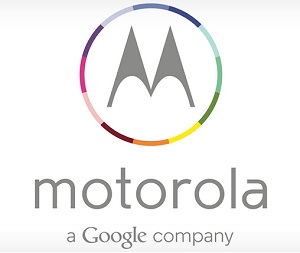Google’s Motorola Mobility Faces MPEG-2 Lawsuit
The smarter way to stay on top of the multichannel video marketplace. Sign up below.
You are now subscribed
Your newsletter sign-up was successful

Google’s Motorola Mobility unit is under fire after three patent holders alleged in a suit filed last week in Florida that the company willfully infringed on seven patents tied to MPEG-2, a digital video compression standard used in digital set-top boxes, TVs, DVD players and other video devices.
The suit, filed by Mitsubishi Electric, Koninklijke Philips, and Thomson Licensing in the District Court for the Southern District of Florida, alleges that Motorola Mobility has been infringing on the patents-in-suit since Jan. 2, 2011, charging that “Motorola has refused to renew its license or take a new license.”
Denver-based MPEG LA offers MPEG-2 licenses from a patent pool that includes the three plaintiffs, as well as Alcatel Lucent, Cisco Technology, British Telecom, General Instrument (originally acquired by Motorola in 2000), LG Electronics, Panasonic, Samsung Electronics and Sony, among several others. MPEG LA was spun out of CableLabs in 1996 originally to manage the licensing of MPEG-2-related intellectual property rights.
Cable operators still use MPEG-2 to deliver video to millions of set-top boxes.
The suit identifies several products, including digital cable set-top box models originally developed by Motorola that use MPEG-2, including the DCX3200, DCX700, DCH100, DCT700, HD-DTA100u, and DCX3510-M.
Google closed the $2.35 billion sale of Motorola Home, the unit that originally made those set-top box models, to Arris on April 17, 2013. Google still owns 7.7% of Arris. Arris is one of 1,417 MPEG-2 “licensees and affiliates in good standing,” according to the current list posted by MPEG LA.
The period of alleged patent infringement identified by the suit predates the Google-Arris deal. Google’s Motorola Mobility unit is currently focused on smartphones, tablets and wireless accessories that don't use MPEG-2.
The smarter way to stay on top of the multichannel video marketplace. Sign up below.
Motorola Mobility declined to comment. The law firm that filed the suit on behalf of Mitsubishi, Philips and Thomson was not immediately available for comment Monday morning.
The complaint identifies the following patents-in-suit:
- No. 7,376,184 (Mitsubishi): “High-Efficiency Encoder and Video Information Recording/Reproducing Apparatus”;
- No. 6,097,759 (Mitsubishi): “Image Signal Coding System”;
- No. 7,362,805 (Mitsubishi): “High Efficiency Encoder and Video Information Recording/Reproducing Apparatus”;
- No. 5,606,539 (Philips): “Method and Apparatus for Encoding and Decoding an Audio and/or Video Signal, and a Record Carrier for Use with Such Apparatus”;
- No. 5,333,135 (Philips): “Identification of a Data Stream Transmitted as a Sequence of Packets”;
- No. 5,422,676 (Thomson): “System for Coding An Image Representative Signal”; and,
- No. 5,459,789 (Thomson): “Packet TV Program Component Detector.”
